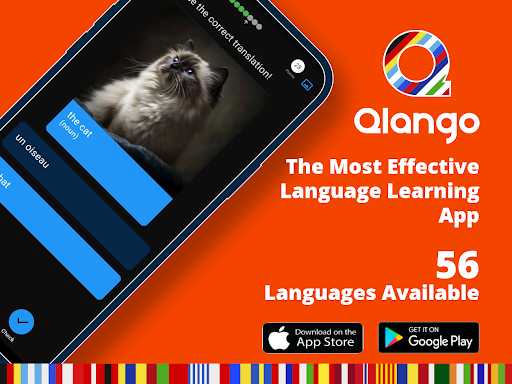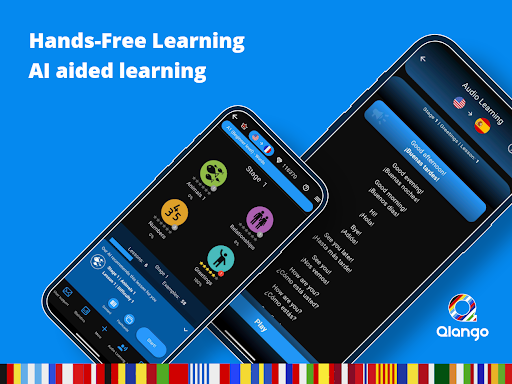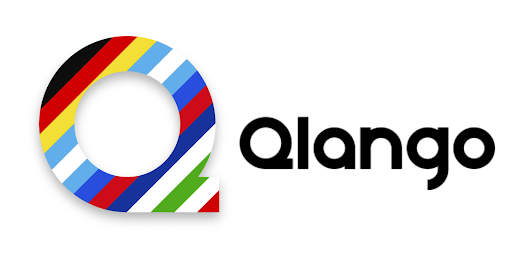Qlango, a language learning app founded by Marko Pozarnik, CEO and serial entrepreneur, is reshaping the landscape of language education with a personalized, user-centric approach that supports an expansive network of 68 languages and over 4,000 unique language pairings. Since its release in 2017, the app has steadily grown in ratings and recognition, supported by strong reviews and a loyal user base that values both flexibility and effectiveness in language acquisition.
The platform distinguishes itself through its focus on simplicity, real-life relevance, and adaptive learning. Designed initially to fulfill a personal need for more effective language learning, Qlango has evolved into a robust tool that now addresses gaps found in other mainstream platforms. One of its primary goals is to ensure learners make actual progress in their target language, rather than simply reinforcing their native language through translations or excessive repetition of known material.
Qlango's methodology revolves around an immersive learning model. The app requires users to respond in their target language only, offering hints when needed and emphasizing positive reinforcement over punitive feedback. Each example within a lesson is repeated until the learner can answer without assistance, and revision cycles gradually increase in complexity to challenge users at the right level of difficulty. In keeping with its commitment to accessibility, Qlango offers a free model that allows users to complete three lessons per day, along with several game-based features that are available without restrictions.
 Personalization is a cornerstone of Qlango’s learning structure. Users can adjust difficulty settings, toggle specific learning features, and even take a placement test to determine their most suitable starting point. The app supports all CEFR (Common European Framework of Reference for Languages) levels from A1 to B2 across many languages, allowing learners to enter and progress based on their proficiency and goals. Upon completion of each level, users receive a diploma that marks their achievement.
Personalization is a cornerstone of Qlango’s learning structure. Users can adjust difficulty settings, toggle specific learning features, and even take a placement test to determine their most suitable starting point. The app supports all CEFR (Common European Framework of Reference for Languages) levels from A1 to B2 across many languages, allowing learners to enter and progress based on their proficiency and goals. Upon completion of each level, users receive a diploma that marks their achievement.
One of the most defining characteristics of Qlango is its commitment to linguistic diversity. Unlike many competitors, Qlango supports language pairings beyond English-centric combinations. Users can, for example, learn Italian from Portuguese or Japanese from Arabic. This inclusive approach is vital for learners worldwide who may not speak English as a first or second language.
The application also integrates learning tools that accommodate various learning styles and environments. For those on the go, hands-free learning features enable audio-based practice, while parallel audiobooks with subtitles offer immersive storytelling experiences that reinforce vocabulary and syntax. Users can choose to focus on either words or full sentences and engage in interactive games such as Minute Rush, Wordle-like challenges, and Unscramble, all designed to reinforce language retention through repetition and context.
Qlango also offers extensive statistical tracking, giving learners detailed insights into their performance, areas of improvement, and historical trends in engagement. These analytics foster greater self-awareness and motivate users to remain consistent in their learning journeys. Moreover, AI integration—combined with human expert review—ensures that user inquiries about linguistic examples are accurately and promptly addressed.
In terms of usability, the app is designed to accommodate learners with different levels of familiarity with various writing systems. Subtitles are provided for languages that do not use the Latin alphabet, ensuring clarity and reducing learning friction. Instructions embedded within brackets guide learners to understand context and grammar rules naturally rather than through rote memorization.
 Marko Pozarnik, who brings over two decades of experience in the IT sector and a personal passion for languages, founded Qlango after discovering significant shortcomings in other language learning platforms. He explains, “I wanted to build something that actually helps people learn. It’s not just about doing exercises—it’s about remembering them and using them. Qlango is for people who really want to make progress.”
Marko Pozarnik, who brings over two decades of experience in the IT sector and a personal passion for languages, founded Qlango after discovering significant shortcomings in other language learning platforms. He explains, “I wanted to build something that actually helps people learn. It’s not just about doing exercises—it’s about remembering them and using them. Qlango is for people who really want to make progress.”
The app’s design choices are informed by Pozarnik’s own experience as a learner. His journey through various languages—including Russian, French, German, and Serbo-Croatian—highlighted the need for a system that prioritized recall and relevance. After building a prototype for personal use that yielded better results than existing commercial alternatives, he scaled the concept into Qlango with the goal of making language learning more efficient, inclusive, and genuinely educational.
Despite operating with self-funding, the company has positioned itself as a noteworthy player in the digital language learning ecosystem. Reviews from the Educational App Store awarded the app a 5-star rating, acknowledging its comprehensive feature set and user-friendly interface. The app’s availability on both iOS and Android platforms, as well as its presence on major social media channels, continues to facilitate its growth and reach.
As Qlango continues to develop, it remains focused on refining its features, expanding its language support, and fostering meaningful engagement with its user base. With an emphasis on actual language acquisition rather than gamified learning metrics, Qlango is positioned as a pragmatic alternative for individuals seeking lasting language skills across an exceptionally diverse linguistic spectrum.
For more information, visit Qlango's homepage.
Download the app: App Store | Google Play
Social media: Instagram, Facebook, X
Review profile: Educational App Store
